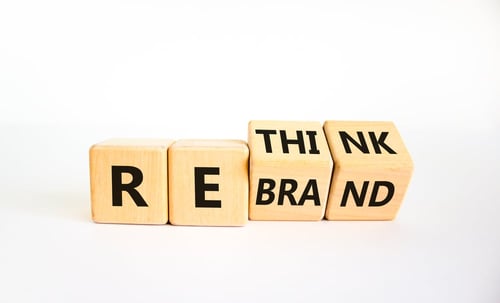
There's no doubt that choice is great. With just a few quick clicks, you can find anything you want—your favorite movie or even your favorite movie at the right time. But choice can be overwhelming. In his TED Talk, The Paradox of Choice, Psychologist Barry Schwartz takes aim at a central tenet of western cultures: freedom of choice. Schwartz estimates choice has made us not freer but more paralyzed, not happier but more dissatisfied.
Barry Schwartz has noted that too many choices are one of society's biggest problems, disrupting everything from dating to health to sleep. In fact, he says, in an ever-increasing number of situations, "more choice is actually worse than less." And before you ridicule the idea that having too many options could actually make people worse off—it already happens regularly in the grocery store.
Consider the snack aisle in your favorite supermarket. You've likely had the experience of being taken aback when you look at the options presented in front of you. Even when you know precisely what you're looking to buy, down to the exact product, brand, flavor, and size, with a vast selection right in front of you, chances are you have second-guessed yourself.
The more choices you're given, the more difficult it becomes to make a decision. This psychological concern has a huge impact on customers' buying decisions. In this article, we'll talk about how the more options your customers have, the less likely they are to buy.
When Consumers Feel Overwhelmed
In the early days of brand management, there were fewer options in the market across the board—fewer categories, fewer brands within those categories, and fewer alternatives within any given brand. Today more competitors are going to market with more brands than ever before. A more crowded and competitive marketplace makes it immensely harder for brands to stand out from the pack.
The digital world has exacerbated this phenomenon. Namely, digital platforms offer great reach for brands. But a brand also runs a higher risk of becoming just another number when it is one of dozens of online search results, as opposed to one of only a handful of options on physical store shelves, or for a B2B company, on a tradeshow floor.
The proliferation of choice also affects customers. When faced with a staggering number of available options for virtually any given purchase decision, people prefer to walk away rather than make a difficult decision. In this sense, choice indeed can be debilitating.
A study conducted by researchers in California demonstrated this phenomenon using jars of jam. The team set up a booth to sell jam, offering samples to passing customers. Sometimes, the stand provided 24 selections¬–other times, only six. Sixty percent of passersby visited the stand with 24 choices, but only three percent of those visitors made a purchase. While only 40% of visitors stopped to see the smaller stand, 30% of those people bought something.
Further research from Northwestern University found that the marginal value of each option goes down as the number of options goes up. People faced with three products perceive distinct differences in quality, but when faced with three dozen, they see most of the products as interchangeable. Additional options don't create more value in customers' eyes, but they create more stress, leading to fewer sales.
In this digital age, the capacity for choice is increasingly available with a quick online search. This means that the consumer has complete control over what they can buy for the first time in human history. This causes a huge problem because, as we have seen above, too many choices make it harder to pick one option out of all the possibilities. In other words, your customer will leave empty-handed without any purchases because they simply couldn't choose.
Does Your Brand Lack a Meaningful Point of Difference?
Brand managers may no longer enjoy the power advantage they once had in the company-customer relationship. Still, the democratization of branding can be just as much of a benefit as it can be an obstacle. It is time for companies to resume their roles as leaders through more robust brand strategies based on differentiated brand positioning.
Recent Posts
Posts by Topics
- Brand Strategy (57)
- Brand Strategy Consulting (28)
- Brand Differentiation (27)
- Customer Experience (24)
- Brand Positioning (22)
- Marketing Strategy (9)
- Brand Extension Strategy (8)
- Customer Behavior (8)
- Brand Architecture Strategy (7)
- Brand Extension (7)
- Brand Growth (7)
- Brand Portfolio & Architecture (7)
- Brand Purpose (7)
- Brand Value Proposition (7)
- Brand Engagement (6)
- Brand Portfolio Strategy (6)
- Brand Storytelling (6)
- Rebranding Strategy (6)
- Brand Awareness (5)
- Brand Image (5)
- Branding (5)
- Rebranding (5)
- Technology (5)
- B2B Brand Strategy (4)
- Brand Experience (4)
- Value Proposition (4)
- Brand Extendibility (3)
- Brand Metrics (3)
- Brand Repositioning (3)
- Corporate Branding (3)
- Differentiation Strategy (3)
- Measurement & Metrics (3)
- Brand Engagement Strategy (2)
- Brand Portfolio (2)
- Brand Promise (2)
- Brand Voice (2)
- Digital Marketing (2)
- Digital and Brand Experience (2)
- Employee Brand Engagement (2)
- Brand Architecture (1)
- Brand Development (1)
- Brand Equity (1)
- Brand Identity (1)
- Brand Measurement (1)
- Brand Name (1)
- Brand Strategy Consultants (1)
- Brand Strategy Firms (1)
- Digital Strategy (1)
- Internal Branding (1)
- Messaging (1)


